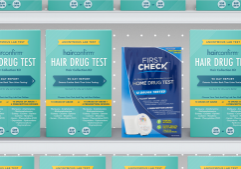Drug Abuse and How It Affects Your Child's Brain Development
While pregnant, women take extra precautions in order to protect the baby growing inside of them. Prenatal exposure to harmful substances puts the fetus in danger of developmental defects. Fetal brain development is particularly complex and vulnerable to every specific damage from maternal drug abuse depending on the timing, dosage and frequency of drug exposure.
Brain development does not stop at birth. This process continues way into adolescent years until about 24 years of age, which is why drug abuse has such a damaging effect even at this stage. Being enclosed entirely within the skull, the brain relies on the sensory nervous system for information about its surroundings. Based on all these information, it grows and develops by building its connections and neuronal pathways. If any of the senses that deliver information to the brain gets damaged because of substance abuse, the brain suffers from sensory deprivation. If this happens at critical stages of brain development, its growth and function will likely be impaired.
The brain matures faster in its lower segments (brain stems). When the brain stem is fully matured and healthy at birth, the infant is able to sustain its own life. To support life, reflexes that should be present include breathing, sleeping, feeding, digestion and elimination plus the vital sensory inputs (vision, hearing and somatic sensations). If the brain stem’s development is in any way disrupted by the pregnant mother’s substance abuse, the baby’s very survival will be at stake.
The cerebral cortex is the least advanced region of the brain during its early development. It only grows in size and function (motor, spatial and perception) at around 13-15 years of age. By 17 onwards the frontal lobe also grows and forms more connections to other parts of the brain. Adolescence is the stage when memory is at its peak. It is at this time when a person develops cognitive strategies; increases reasoning abilities and sharpens hypothetical thinking and systematic problem solving. Unfortunately 12 is also the age at which the young get introduced to substance abuse. Imagine all the brain development that becomes compromised due to drug addiction at this stage, not to mention its effect on mood and emotional responses, judgment and interpersonal skills.
The evidence is in the brain scans….
A study was done on one group of 14 young male residents of a drug treatment center, all with a history of heavy marijuana use during their early adolescent years, and another group of 14 healthy young males. Brain scans were done on all men to measure water movement through their brain tissues.
The young men with histories of marijuana use all showed abnormal patterns of water diffusion in their brains, suggesting a disrupted development of the myelin sheath surrounding their brain cells in areas that would have been under development around the time they were using. These abnormalities correspond to regions of their brain involved in attention, memory, language, decision-making and executive functioning skills.
This study admittedly is very small and may have to be repeated on a larger scale, with more sophisticated research parameters, yet it brings to light very significant findings concerning drug abuse and its effect on the developing brain of the young.
Prevention is always better than cure….
There are widespread drug abuse testing in schools and places of employment. More parents are using home drug test kits on their kids. These moves achieve the crucial first step in the fight against teen drug abuse, that of identifying individuals who need intervention at the very least.
Nothing however beats prevention. What better way to prevent our kids from doing drugs than to educate them (and their parents) as early as may be appropriate about the detrimental effects of drug abuse on their brains. Surely no kid wants to grow up with “an empty skull”.
Support
Ordering
About Us
Connect
Confirm BioSciences.
© 2019 Confirm BioSciences, Inc.
All Rights Reserved. See our Terms & Conditions and Private Policy.



